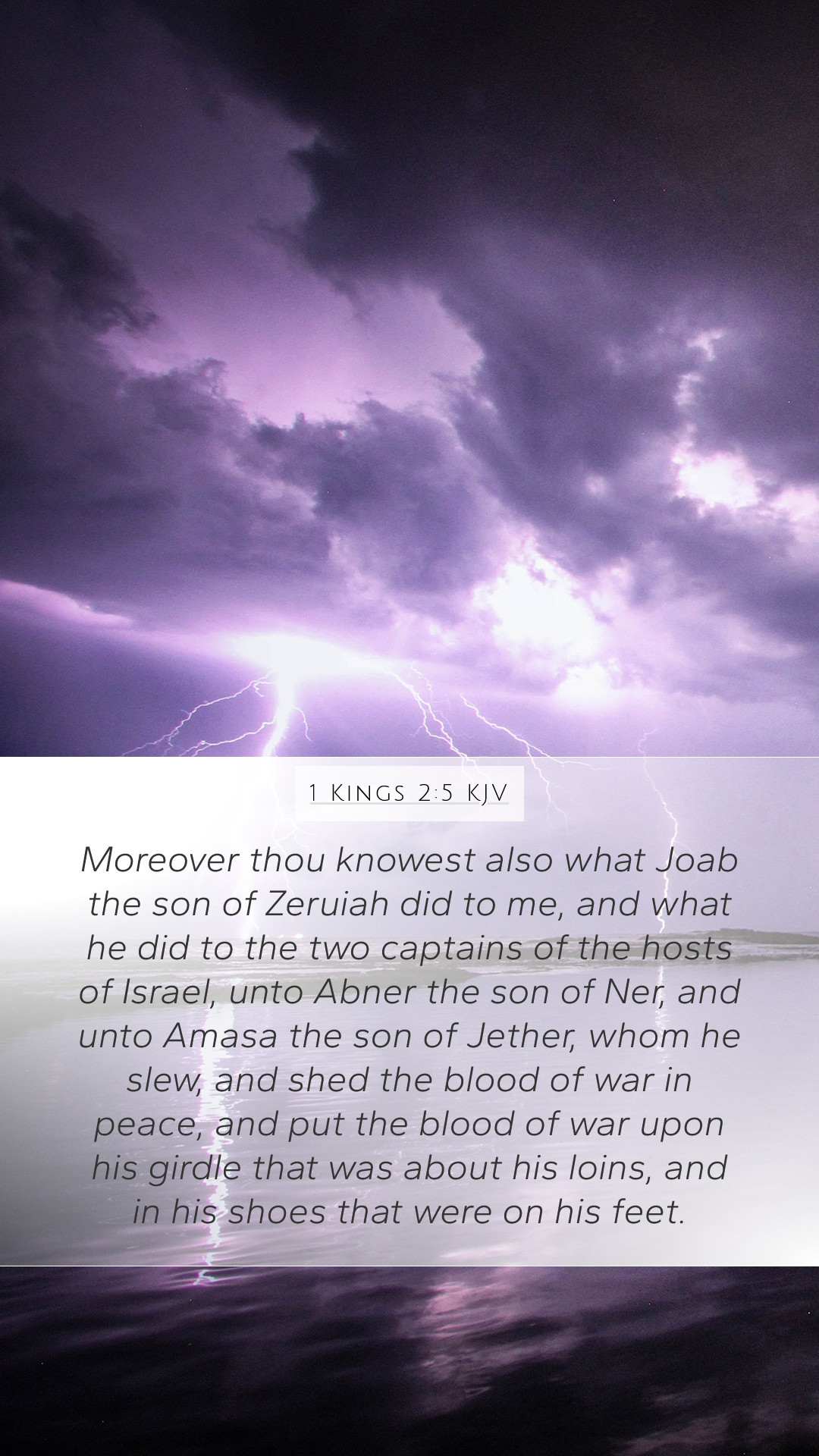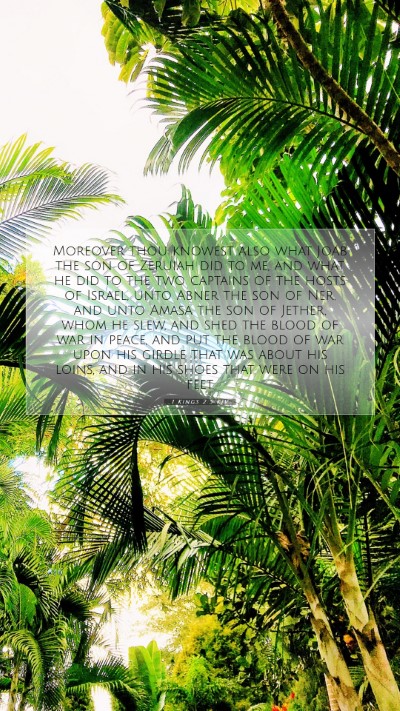Understanding 1 Kings 2:5
In this passage, we find King David addressing his son Solomon with significant words of wisdom regarding the fate of Joab, the commander of his army. This verse serves as part of David's final instructions and conveys deep themes of justice, memory, and the importance of following God’s direction.
Bible Verse Meaning
1 Kings 2:5 states: "Moreover thou knowest also what Joab the son of Zeruiah did to me, and what he did to the two captains of the hosts of Israel, unto Abner the son of Ner, and unto Amasa the son of Jether, whom he slew, and shed the blood of war in peace, and put the blood of war upon his girdle that was about his loins, and in his shoes that were on his feet."
Contextual Analysis
This verse highlights the actions of Joab, a complex character known for his military prowess but also for his ruthless behavior. David reminds Solomon of Joab's disloyalty and treachery, emphasizing the need for justice in Solomon's reign.
Matthew Henry's Commentary
Matthew Henry points out that David's recollection of Joab's crimes serves as both a warning to Solomon and a justification for actions that would soon be taken against Joab. Henry notes that Joab alternated between loyalty and treason, which left a mark on the nation. Thus, David is urging Solomon to take decisive action in dealing with characters like Joab to ensure a just and righteous reign.
Albert Barnes' Commentary
Albert Barnes emphasizes the historical context surrounding Joab's actions, detailing the murder of Abner and Amasa, which were committed during moments of political upheaval. Barnes posits that these acts, done in peace, were particularly egregious and that Solomon's understanding of his father's words would guide him in his leadership. The importance of holding people accountable, particularly those who wield power, is central to this interpretation.
Adam Clarke's Commentary
Adam Clarke elaborates on the implications of the verse for both leadership and justice. Clarke interprets the reference to Joab’s bloodshed as a call for Solomon to cleanse his kingdom of unrighteousness. He suggests that the pursuit of justice is paramount and that leaders must be vigilant against those who might misuse their power.
Key Themes Explored
- Justice and Accountability: The need to confront and deal with wrongdoing is vital for effective governance.
- Legacy and Memory: Reflecting on past actions influences current decisions and the future of a kingdom.
- Leadership Influence: A leader’s moral compass has direct implications on the society and people they govern.
Application of the Verse
Understanding 1 Kings 2:5 encourages contemporary readers to consider the implications of their decisions, especially in leadership roles. Just as David advised Solomon, today’s leaders must remember the importance of justice and responsibility. This verse can inspire Bible study groups and individuals alike to reflect on how they address moral complexities in their lives and communities.
Cross References
- 2 Samuel 3:27 - Joab's murder of Abner provides a background to David's warning.
- 2 Samuel 20:9-10 - Further illustrates Joab's treachery and the consequences of his actions.
- 1 Kings 1:7 - Highlights Joab's alignment with Adonijah against Solomon.
Conclusion
The exploration of 1 Kings 2:5 showcases the depth of biblical scripture and the multifaceted nature of its characters. With insights from various public domain commentaries, we gain a fuller understanding of its implications for readers today. Engaging in Bible verse understanding through commentaries and study resources can enrich one's Bible study insights and enhance personal spiritual growth.


